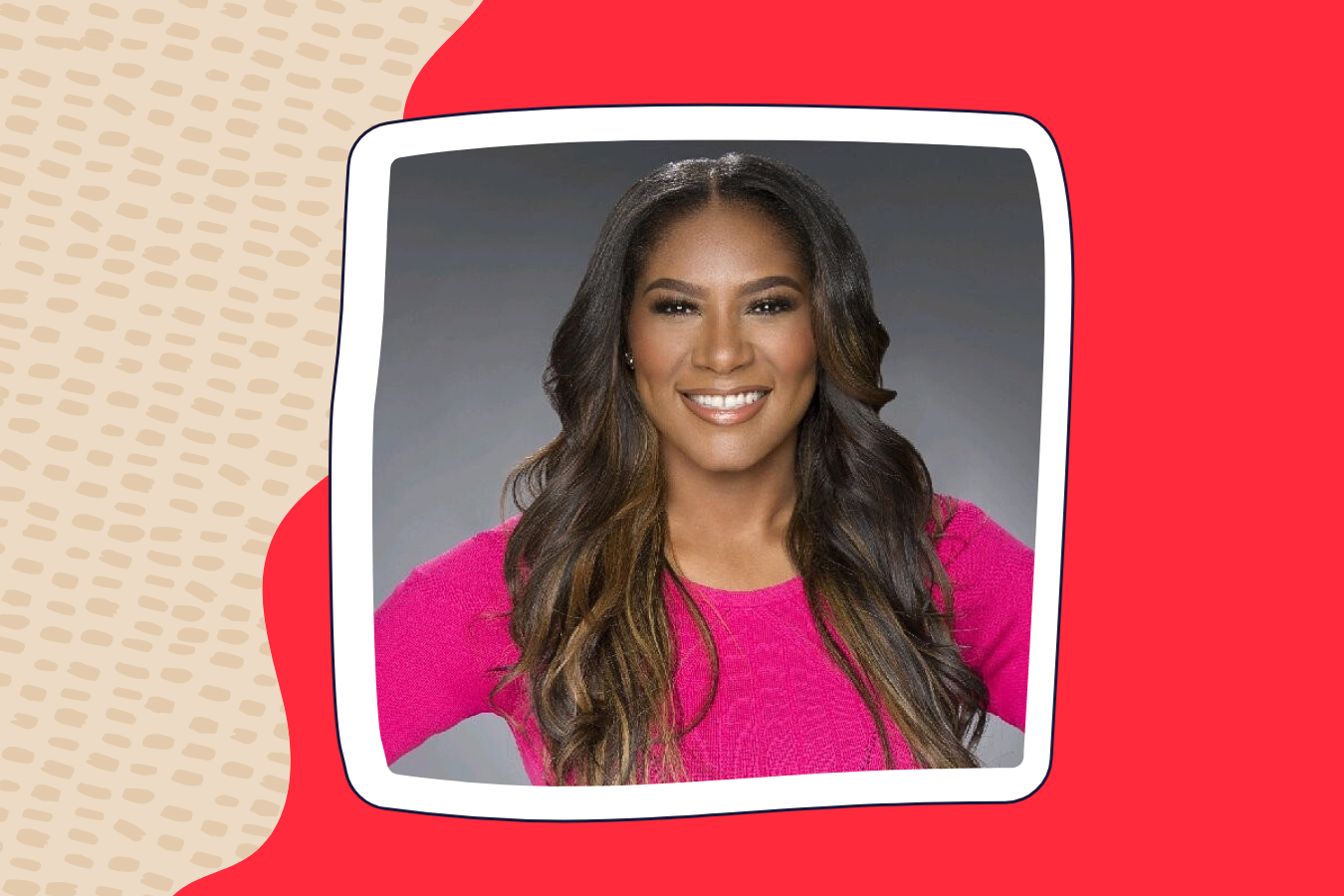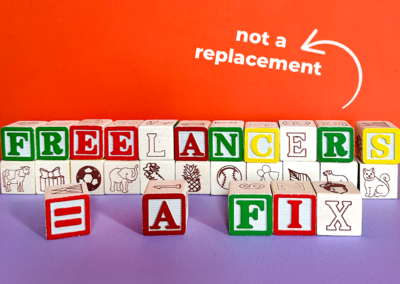Some people find their calling early. Dwayna Haley already knew she wanted to work in public relations by the time she finished seventh grade. “I had a teacher and also a family member who encouraged me to look it up,” she says. “They thought it was a good aggregate of the things that I like to do.”
Two decades later, Dwayna has certainly proved them right. She carved out a dynamic career in the field—rising through the ranks at several PR companies, from all-hands-on-deck boutique agencies to massive global communications firms. “I was born, raised, and groomed in an agency environment,” she says.
Today, Dwayna is a chief marketing and communications executive and the founder of Haley Communications Group in Atlanta. Having weathered both gradual cultural changes and major disruptions (like the advent of social media), she’s brimming with insights gleaned over years in the marketing trenches and she remains fiercely devoted to her field. But she also sees a profound need for marketers to evolve with the times. She believes that an ever-changing business needs to adapt to new generations of workers, meeting the future with nimble creativity.
Harnessing PR’s wide-ranging influence
Dwayna says that when she first entered public relations, it seemed to be “all about red carpets and fabulous parties.” But in an industry geared toward influencing human behavior, she’s also used her skillset to tackle issues like world hunger and socioeconomic inequality.
“For five years, I worked on pollinator health and how bees and monarch butterflies contribute to growing our food,” she says. “[We were] educating consumers on how the environment impacts [the food supply] so that we would have more responsible consumers.” A purpose-driven thread runs through many of her campaigns, allowing her to address long-standing societal problems.
Even when the goal is simply to get people to try a new product, she loves to bring out the universality of the human experience. “It’s about making sure that no matter the cultural disparities or race or gender or any of the socioeconomics, I can help everyone to understand [an idea] at the same time and at the same clip.”
Recognizing the limitations of agency life
Dwayna hugely values the experience she gained at big firms. But about three years ago, she left a leading global communications agency to take a C-suite role at a nonprofit. What led her to make the jump?
“You begin to look over the fence at the client side of the business and think, ‘I’d really like to be a part of the sausage-making rather than…having to execute someone else’s strategy,’” she explains.
She notes that traditional agencies can put limitations on talented creatives, who are often siloed into separate departments. Under this system, a campaign’s resources might be stretched in several directions at once. And many of the more junior creatives don’t have a depth of understanding about the project’s origin story.
“They don’t know what’s really happening in the decision-making process, where that’s happening, and who’s involved,” she says. For young marketers, that can make for a stagnant, discouraging work situation. Projects can also take longer than they ought to “because there are so many people who need to weigh in and make sure that everything is right before it’s external,” she says.
Going the extra mile
“I was taught by my boomer parents to work hard, and then you’ll get there,” Dwayna says. This mindset served her well in the early years of her career, when marketing firms put hefty demands on her time. She recalls one difficult work trip she took shortly after learning she was pregnant. Like many women in the workplace, she chose not to reveal the pregnancy right away.
“I traveled to New York for a media showcase that we were doing for Kodak products,” she says. “It was freezing at the event venue to keep the inkjet printers and digital cameras at the right temperature.” After several hours of being chilled to the bone, she got soaked in a downpour on the way to the airport, where she discovered that her flight had been delayed.
By the time Dwayna got home, she says, “I was sick as a dog, feeling feverish. And no one understood why I was kind of dragging, because I wasn’t ready to tell people. I remember being at the airport—soaking wet, pregnant, and miserable.”
Looking back on the experience, she says, “If you are someone who is seeking work-life balance, I would not say that an agency is the place where you want to cut your teeth, because that is not going to be provided.”
Understanding generational differences
Nowadays, marketers entering the business have a different mindset about work. Dwayna has found that younger generations—who are digital natives—are focused on identifying faster, easier, more efficient ways to do things. “They think, ‘I don’t have to just grind this out,’” she says. “If they can do it faster and be done with it, they think, ‘Great, let’s do that.’”
In addition, she says, younger people “are absolutely looking for an alignment with their expectations and their lifestyle. They want to be able to travel. They want to be able to do brunch on the weekends. They want to be able to vacation and have PTO without disruption.”
Traditional agencies have been slow to respond to such generational differences. Dwayna likens them to big, Titanic-like ships on the ocean. “It’s harder for them to make the turn,” she says.
Meanwhile, smaller, niche-focused agencies and innovators like We Are Rosie are more attractive to young marketers because they operate more like a startup.
While this targeted approach to marketing is relatively new, it’s become increasingly attractive to seasoned marketers like Dwayna. She’s enjoyed the autonomy and flexibility of the work she’s done as a consultant. “I get to continue working, applying my skills, and learning this discipline,” she says. “But I can shape my life and my days. I can take the time to ask, ‘What do I want to do next?’”
Marketing to a swiftly diversifying population
Since Dwayna entered the industry, the United States has been rapidly growing more diverse. In the 2020 census, nearly four out of 10 Americans identified with a race other than white. And this trend is expected to continue.
As society has changed, large marketing agencies have been slow to adapt to new and differing perspectives. “I was in my career for probably six, seven years before there was anyone else that really looked like me in that environment,” Dwayna says. “And yet we had clients coming to us, needing for us to talk to a broad stroke of audience, but that experience—lived, learned, and professional—wasn’t in the room.”
But in the last few years, Dwayna has been encouraged in this area, specifically through her work with We Are Rosie. She loves that the company puts a high premium on diversity and the dynamism that results. It’s one of the advantages of the new, agency-like service, Run by Rosie.
“Run by Rosie is basically able to put together a ‘best teams’ approach every time,” she says. If a client wants to hire a team to target a specific demographic, We Are Rosie has access to a level of diversity that traditional agencies simply can’t bring to the table.
Meeting the challenges of a changing workplace
The pandemic ushered in an era of remote-work flexibility that’s transformed the workplace in countless industries. In a February 2024 Gallup poll, 54% of U.S. employees reported that they work from home at least part of the time, while 27% are exclusively remote.
In the marketing world, this shift has opened up the talent pool to people in all locations, enabling companies to hire the best team possible for each particular project.
But it also poses a challenge. Dwayna explains that a client might wonder whether team members who are unfamiliar with one another will be able to gel. “In pulling together this supercharged best team for me, are these people going to be OK in working with each other and collaborating with each other, especially if they’ve never worked with each other before?” she says.
We Are Rosie has years of experience tackling this particular hurdle. When Dwayna was a Rosie at Delta, for instance, she was impressed by the ongoing efforts to ensure connection through virtual lunch dates and other activities. “We Are Rosie was really diligent about making sure that the Delta Rosies got together at least every other month,” she says. “[So] it didn’t feel so lonely and siloed.”
Embracing a new kind of marketing model
Run by Rosie’s innovative, team-of-specialists strategy has Dwayna feeling optimistic about the future of marketing. “When someone has the flexibility and the time to be thoughtful about their career, that’s absolutely the type of person that [companies] want to employ,” she says. Those people are positioned to bring success to any project.
The traditional agency model has served Dwayna well in the past, but she’s counting on the current disruptions to shake things up and promote positive change. “I think if the traditional model doesn’t change, we risk diluting the value of what agencies bring,” she says. “Are we too slow in moving with the times, or are we future-proofing the business?”



